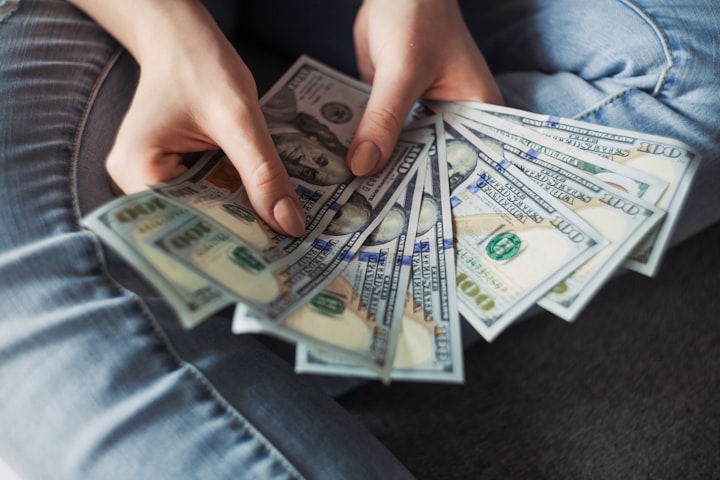How to Maximize Your After-tax Returns on Cash with Short-term Treasury Bills
A safe way to earn strong after-tax returns on your cash while still remaining liquid

Finally, after 15 years of financial repression in a world of zero interest rates, cash is now able to earn an good return. But, what are safe ways to maximize your interest earnings? Today's post is about Treasury bills and how they can safely maximize after-tax return while still retaining your liquidity.
I was recently reading a good article titled: A Boring Way to Make Money is Back by an author I follow on Medium named Bernard. In his article, he talked about how he has invested in CDs to earn a good return on the cash he holds. I've recently been buying Treasury bills as part of laddering my cash holdings and let him know about them in my comment. He responded that he hadn't considered them yet but was thinking about getting into them as he had seen some stories about Treasury bills in his news feed. That's what sparked my interest in writing today's post - if a very experienced investor like Bernard is looking into Treasury bills for his cash holdings, an article on bills can also be of value for less-experienced investors.
What is a Treasury bill?
According to Investopedia, "A Treasury Bill or T-Bill is a debt obligation issued by the U.S. Department of the Treasury. Of the debt issued by the U.S. government, the T-Bill has the shortest maturity, ranging from a few days to one year."
Treasury bills are sold at a discount to par. This means that you pay less for the bill than the face value with the difference being the interest. So, for a $1,000 6-month bill, you would pay ~$976. Six months from now, you'd get the full $1,000 paid back to you comprised of your initial $976 payment and $24 interest.
What are the advantages of Treasury bills?
There are a number of advantages for Treasury bills that really make them worthwhile investments in my mind:
- Offer market interest rates: I put in an order this weekend for 6-month bills which are indicated to offer slightly above a 5% interest rate. The interest rate is better than the vast majority of CDs or high interest-rate bank accounts that I can find. All the different maturities I saw (4-week, 3-month, 6-month and 1-year) had interest rates meaningfully above 4%
- Can be bought in many different maturities: Right now, I'm focused on 3-month, 6-month and 1-year bills as part of the ladder that I'm building. A ladder is a portfolio of individual CDs or bonds that mature on different dates. This strategy is designed to provide current income while minimizing exposure to interest rate fluctuations (Bond ladders by Charles Schwab). I will write a post shortly describing bond ladders so please keep an eye out for that
- Tax advantaged: Interest earned on Treasury securities is exempt from state and local taxes. I live in California which has high state taxes -our marginal tax rate is 9.3% - so this provides a nice bump in my after-tax interest rate relative to a bank account or CD on whose interest I have to pay state taxes. Please note that you do have to pay federal income tax on bills just like you would for bank accounts or CDs
- Safe: Bills are issued by the US government and, as such, "are considered to be risk-free assets. The likelihood of the U.S. government defaulting on debt obligations is incredibly low, given its ability to tax and print money and, of course, the general strength and reputation of the U.S." (Investopedia)
- Liquid: Bills are traded real-time as are other Treasury securities. There are no penalties for selling early vs. CDs where you are likely to get hit with a penalty. You do take some interest-rate risk - if interest rates have risen since you bought the bill, the price that you could sell the bill before maturity goes down. However, you can mitigate interest-rate risk by laddering your purchases. Also, as Treasury bills are short duration, the impact of interest rate changes is minimal. You can always hold the bill until maturity where it is paid back in full
- Are easy to buy: I buy my Treasury bills through my brokerage fund. It is very easy to do so online, literally requiring a couple of minutes. I don't have to go through the effort to shop various providers as one would need to do with high interest-rate bank accounts or CDs. You can also buy bills directly from the government at TreasuryDirect.gov. When you buy direct from the government, you can buy in increments of $100 whereas in many brokerages, you have to buy increments of $1,000
For all the reasons enumerated above, I would definitely recommend that you look into buying Treasury bills. I do so for about half of my emergency fund. Also, anytime I receive some unexpected money, I put that into Treasury bills while I figure out where I'm going to invest it.
This completes today's post on Dollar Cost Averaging and how it can maximize the return of your investments. The practical steps you can start taking from today's post are:
- Start buying Treasury bills for the cash portion of your portfolio: I use Treasury bills for about half of my emergency fund to increase the interest I earn while still having liquid funds
- Build a ladder of Treasury bills to maximize earnings and liquidity: I will write an article on bond ladders shortly as this isn't a subject I went into detail in today's post. Please keep an eye out for that
Thank you again for joining me on my journey to build financial literacy for young adults and their families. Please share any comments or questions that you have in the comments section. If you are interested in reading more of my posts, please access my author page (https://vocal.media/authors/sudhir-sahay) where you can see all the posts I’ve published. Also, if there are any topics you’re interested in my broaching in future posts, please let me know. In addition to the comments section, I can be reached at [email protected].
About the Creator
Sudhir Sahay
Sudhir Sahay is a Sales and Marketing executive and a father of two young men. Sudhir hopes to share his journey building basic financial literacy for his children and providing savings and investing advice to their friends and peers.






Comments
There are no comments for this story
Be the first to respond and start the conversation.